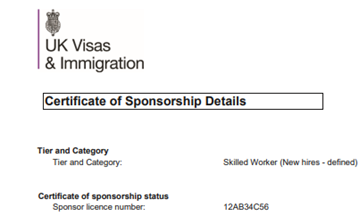Metal Making and Treating Process Operatives (SOC Code 8115)
Metal making and treating process operatives play a crucial role in the manufacturing sector, focusing on the transformation and refinement of metal materials through various processes. Their responsibilities include:
- Charging and Operating Furnaces:
- Charges furnace and operates controls to regulate furnace temperature.
- Adds oxidising, alloying, and fluxing agents as required.
- Sampling and Metal Flow Management:
- Withdraws samples of molten metal for analysis.
- Taps slag from the surface of molten metal and directs the flow of molten metal into casts.
- Rolling Process Oversight:
- Sets the rolling speed, tension, and space between rolls.
- Guides the metal to and from rollers, monitors the rolling process to detect irregularities, ensuring that the gauge and finish match required specifications.
- Surface Cleaning Operations:
- Operates equipment to remove dirt, scale, and other surface impurities by immersion in chemical solutions.
- Metal Heating and Hardening:
- Heats metal or metal articles in a furnace, allows a specified cooling time or quenches in brine, oil, or water to harden, reducing brittleness and restoring ductility.
- Shaping and Treatment:
- Operates piercing, extruding, pressing, and other metal processing equipment to shape and treat metal or metal articles.
- Coats metal parts and articles electrolytically, forms metal articles by electro- and vacuum-deposition, dips and sprays articles with another metal, plastic powder, or material, and chemically treats articles to produce desired finishes.
With the industry continuously evolving, the demand for skilled metal making and treating process operatives remains robust, leading many organizations to seek qualified professionals to enhance their production capabilities. This guide aims to assist HR professionals in effectively navigating the process of hiring and sponsoring operatives under the UK’s immigration framework.
What is SOC Code 3411 for Metal making and treating process operatives?
SOC Code 8115 refers to metal making and treating process operatives who are skilled in the management and operation of metal production processes. Their responsibilities can include:
- Charging furnaces: Adding raw materials and regulating furnace temperature to initiate the metal-making process.
- Sampling and analysis: Withdrawing samples of molten metal for quality control analysis.
- Tapping slag: Removing slag from the surface of molten metal and directing the flow into casting molds.
- Rolling operations: Setting rolling speed, tension, and spacing between rolls, ensuring proper guidance and monitoring to achieve required specifications.
- Surface cleansing: Operating equipment to remove impurities from metal surfaces by immersion in chemical solutions.
- Heat treatment: Heating metal or metal articles in furnaces, followed by controlled cooling or quenching to enhance properties like hardness and ductility.
- Metal processing: Operating piercing, extruding, pressing, and other specialized equipment to shape and treat various metal articles.
- Electrolytic coating: Coating metal parts through electrochemical processes, and applying treatments like electro-deposition and vacuum-deposition for desired finishes.
Metal making and treating process operatives play a pivotal role in the manufacturing industry, ensuring the quality and performance of metal products that are essential for various applications and industries.
Eligibility to Hire Metal making and treating process operatives (SOC Code 3411)
1. Job Requirements
Metal Making and Treating Process Operatives must demonstrate proficiency in various metal processing techniques and meet specific qualifications or experience criteria. These may include:
- Technical Skills: Ability to charge furnaces, operate temperature controls, and add various agents such as oxidizing, alloying, and fluxing agents as needed.
- Sampling and Analysis: Competence in withdrawing samples of molten metal for analysis and tapping slag from the surface of molten metal.
- Rolling Process Management: Experience in setting rolling speed and tension, monitoring the rolling process for irregularities, and ensuring that the gauge and finish adhere to specific specifications.
- Cleaning and Surface Treatment: Skills in operating equipment to remove dirt, scale, and other surface impurities, including immersion in chemical solutions.
- Metal Hardening Techniques: Knowledge in heating metal or metal articles in furnaces, cooling processes, and quenching methods to achieve desired hardness and ductility.
- Metal Shaping Equipment: Proficiency in operating various metal processing equipment including piercing, extruding, and pressing to shape and treat metal or metal articles.
- Coating and Finishing: Experience in coating metal parts electrolytically, using electro- and vacuum-deposition techniques, and chemically treating articles to achieve desired finishes.
Ensure the job description aligns with SOC Code 8115 and that the candidate's experience and skills meet the expectations for the role.
- Salary Thresholds
- Use the Minimum Salary Calculator to ensure your salary offer meets immigration requirements.
Sponsoring Metal making and treating process operatives: A Step-by-Step Guide for HR Professionals
Once you’ve confirmed that the role and candidate meet the eligibility requirements, follow this step-by-step guide to sponsoring Metal making and treating process operatives under SOC Code 8115.
Step 1: Obtain a Sponsor Licence
Before hiring non-UK Metal making and treating process operatives, your company or institution must obtain a sponsor licence. This licence enables you to legally sponsor overseas Metal making and treating process operatives under the Skilled Worker Visa program.
- Sponsor Licence Application: Submit documentation proving that your business is legitimate and has a genuine vacancy. Visit the sponsor licence application guide for more information.
- Sponsor Licence Fees: Small businesses typically pay £574, while larger institutions pay £1,579. For more information, visit the sponsor licence fees guide.
- Processing Time: Applications typically take up to 8 weeks, but using the Sponsor Licence Priority Service can reduce the processing time to 10 working days.
Once your sponsor licence is approved, you will receive a sponsor licence number, which allows you to assign Certificates of Sponsorship (CoS).
Step 2: Assign a Certificate of Sponsorship (CoS)
Once you have your sponsor licence, the next step is to assign a CoS to the Metal making and treating process operatives. This document provides key details about the job and the individual being sponsored.
- Defined vs Undefined CoS: Use a Defined CoS for Metal making and treating process operatives applying from outside the UK, and an Undefined CoS for those already in the UK. Learn more in the Defined & Undefined Certificates of Sponsorship guide.
- Required Documents: Provide details such as the Metal making and treating process operatives’s portfolio, passport and job offer. Refer to Documents Required for Certificate of Sponsorship for a full list of necessary documents.
Step 3: Apply for the Skilled Worker Visa
Once the CoS is issued, the Metal making and treating process operatives can apply for the Skilled Worker Visa.
- Visa Fees: Fees vary depending on the role and visa length—use the visa fees calculator to estimate the costs.
- Immigration Skills Charge: Employers are required to pay this charge as part of sponsoring non-UK workers. This is separate from visa fees.
Conducting a Right to Work Check for Metal making and treating process operatives
Before the Metal making and treating process operatives begins working, you must conduct a right to work check to ensure they are legally allowed to work in the UK.
- Manual Right to Work Check: Verify original documents such as the Metal making and treating process operatives’s passport and visa.
- Online Right to Work Check: If the Metal making and treating process operatives holds an eVisa, you can use the UK government’s online system to verify their right-to-work status.
For more details on how to perform these checks, see the right to work check guide.
Post-Hiring Responsibilities and Compliance
- Record-Keeping and Reporting
- Record-Keeping: Maintain accurate and up-to-date records of the Metal making and treating process operatives’s employment details, salary and contact information.
- Reporting Changes: Report any significant changes to the Metal making and treating process operatives’s role—such as promotions or salary increases—via the Sponsor Management System (SMS).
- Sponsor Licence Duties and Compliance
- Failure to comply with your sponsor licence duties can result in penalties or sponsor licence revocation, impacting your ability to sponsor future Metal making and treating process operativess.
How Borderless Can Help with Sponsoring Metal making and treating process operatives
Sponsoring Metal making and treating process operatives under SOC Code 8115 can be a complex process, but Borderless can simplify it for you. We offer comprehensive support to help you manage the entire sponsorship process.
End-to-End Sponsorship Support
At Borderless, we assist with:
- Sponsor Licence Application: Guiding you through the application process and ensuring all required documents are submitted correctly.
- Certificate of Sponsorship Assignment: Streamlining the CoS process to make hiring easier.
- Compliance Management: Helping you stay compliant with immigration laws to avoid penalties.
If you need assistance with hiring or sponsoring Metal making and treating process operatives, get in touch for personalised support.
Conclusion
Hiring and sponsoring Metal making and treating process operatives under SOC Code 8115 can be a rewarding way to enrich the cultural landscape of your organisation. By following the steps outlined in this guide, you can successfully navigate the sponsorship process while ensuring compliance with UK immigration laws.
For further guidance, Borderless is ready to assist you with all your sponsorship needs. Contact us for expert advice.
Automate Home Office Audits with Borderless
The Borderless platform provides a centralized system for all sponsorships, automating reminders for key tasks and ensuring best practices across your organization, simplifying audit preparation and ongoing compliance.






